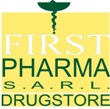 FIRST PHARMA
FIRST PHARMA
Pioneer Discoveries on How DHA Reaches the Brain
We know that DHA is abundant in the brain and is critical for its function throughout life, but little was known about how DHA gets in the brain until now. One study showed it passes into the cerebrospinal fluid (CSF) while another discovered a protein that carries it from the blood into the brain.
In a 6 month, randomized, double-blind trial including 204 Alzheimer’s Disease (AD) patients taking either placebo or 2.3 g of high-DHA oil daily, 33 of them were tested for blood and CSF DHA status1. DHA levels increased in both while inflammatory and AD biomarkers decreased. These results suggest that DHA is transferred across the blood brain barrier. But how does that take place?
Researchers at Duke-NUS Graduate Medical School in Singapore helped answer that question when they discovered a transporter protein called Mfad2a2.
Mice that did not have Mfad2a had brains a third smaller than those with the transporter, had memory and learning deficits and high anxiety, and were deficient in DHA.
Mfad2a is only found in the inside lining of tiny blood vessels between the blood and the brain and so it is part of the blood-brain barrier. It is necessary to enable incorporation of DHA into a phospholipid called phosphatidylcholine that is a main membrane fatty acid within the brain. Inability to incorporate DHA into this phospholipid reduces DHA transfer to and ultimately its levels within the brain. That has major implications for brain development and function.
We know that the brain does not produce DHA on its own. Instead, it is transferred from the mother during fetal development, or after birth and throughout life it is synthesized in the liver or comes directly from food. Now we know how DHA from those three sources manages to find its way into brain tissue where it can do its job!
Knowing how this process occurs will enable future discoveries to further enhance brain absorption of this essential nutrient and facilitate improvements in therapeutic formulations.
FOOT NOTES
1. Freund LY et al. Transfer of omega-3 fatty acids across the blood-brain barrier after dietary supplementation with docosahexaenoic acid-rich omega-3 fatty acid preparation in patients with Alzheimer’s disease: the OmegaAD study. J Intern Med 2014 Apr;275(4):428-36.2. Nguyen L et al. Mfad2a is a transport for the essential omega-3 fatty acid docosahexaenoic acid. Nature 2014;509:503-6.